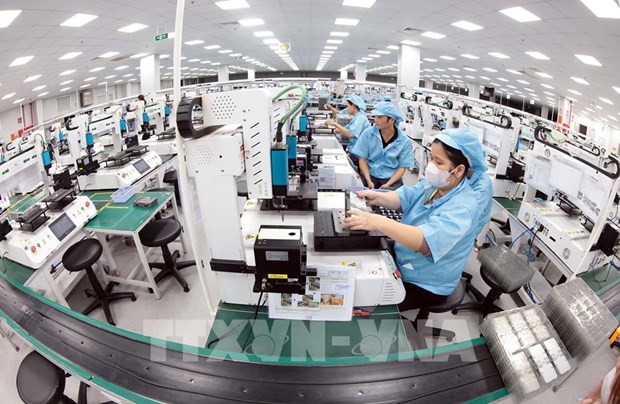.jpg) Opinion
Opinion


|
| Phạm Khánh Phong Lan, head of the HCM City Food Safety Management Board. — VNS Photo Thu Hằng |
As the Tết (Lunar New Year) holiday is only one month away, the demand for food and drinks for the country’s largest holiday has sharply increased at both physical and online stores. The HCM City Food Safety Management Board is ramping up its inspections to ensure food hygiene and safety during the holiday season. Phạm Khánh Phong Lan, head of the board, talks to Việt Nam News reporter about measures to ensure food safety during Tết.
How are inspections being tightened to ensure food safety as the Tết holiday approaches?
The city’s Food Safety Management Board set up multi-sector inspection teams in December, which will carry out tasks until March. They are inspecting producers, vendors and importers of foods and drinks as well as wholesale markets, supermarkets, shopping malls and food and beverage premises.
For now, inspections are focused on food and beverages that are commonly consumed during Tết such as meat products, imported frozen food, beer, alcoholic drinks, vegetables, food addictives, candies and cakes.
Food distribution at supermarkets, traditional markets and stores will be given priority for inspections from now until Tết.
Inspections at food producers and cold-storage warehouses over the last month showed there were not serious violations of food hygiene and safety.
District authorities have also set up inspection teams to crack down on small-scale food producing and processing establishments and food and beverage service providers.
During inspections, samples of products with a high risk of unsafe food will be taken for testing. Food origin tracing will also be carried out if violations of food hygiene and safety regulations are found.
Food testing and origin tracing at wholesale markets and infection disease control stations at gateway points to the city are done on a daily basis to ensure food safety.
Are there food safety risks when buying and selling food on social media websites that have emerged as e-commerce platforms?
Concerns over COVID-19 have driven up online sales, besides the savings in costs. However, sales of food through social media sites pose a great risk to public health.
Home-based food businesses need to meet the same food safety requirements as other firms regardless of size. However, most home-based food businesses are unregistered. It is unlikely that food prepared in a home kitchen would meet the required food safety standards and labelling requirements.
However, the tracing of these unregistered food businesses is a tough task as the addresses on social media website are usually incorrect.
Law enforcement related to home-based food businesses is too loose, and heavy fines are not imposed for food safety or hygiene offences, making it difficult to manage these unregistered food businesses and homemade-food providers.
We have suggested that the industry and trade sector put in place monitoring measures for online food sales.
Specific regulations are needed on homemade food safety controls that cover hygiene, safe cooking, refrigeration, and safe storage and transportation to reduce risks to public health.
Businesses preparing food at home have been told to register as a business and not gamble with people’s health.
What is your advice to locals about choosing food for the Tết holiday?
The public must be aware of the safety of food sold online, especially homemade food. People should purchase food at reputable premises and companies to avoid the potential risk of food poisoning. There are a range of promotions at highly reputable firms during Tết.
Many customers believe in advertising at social media websites and order food online without carefully checking the food origin and labelling.
It is unnecessary to buy and store so much food for use during Tết as the food supply chains and supermarkets will open their doors to serve customers throughout the holiday.
To avoid food poisoning incidents, food must be stored properly.
In addition, limits on beer and alcoholic drink consumption during Tết gatherings and celebrations are necessary to prevent traffic accidents. — VNS









